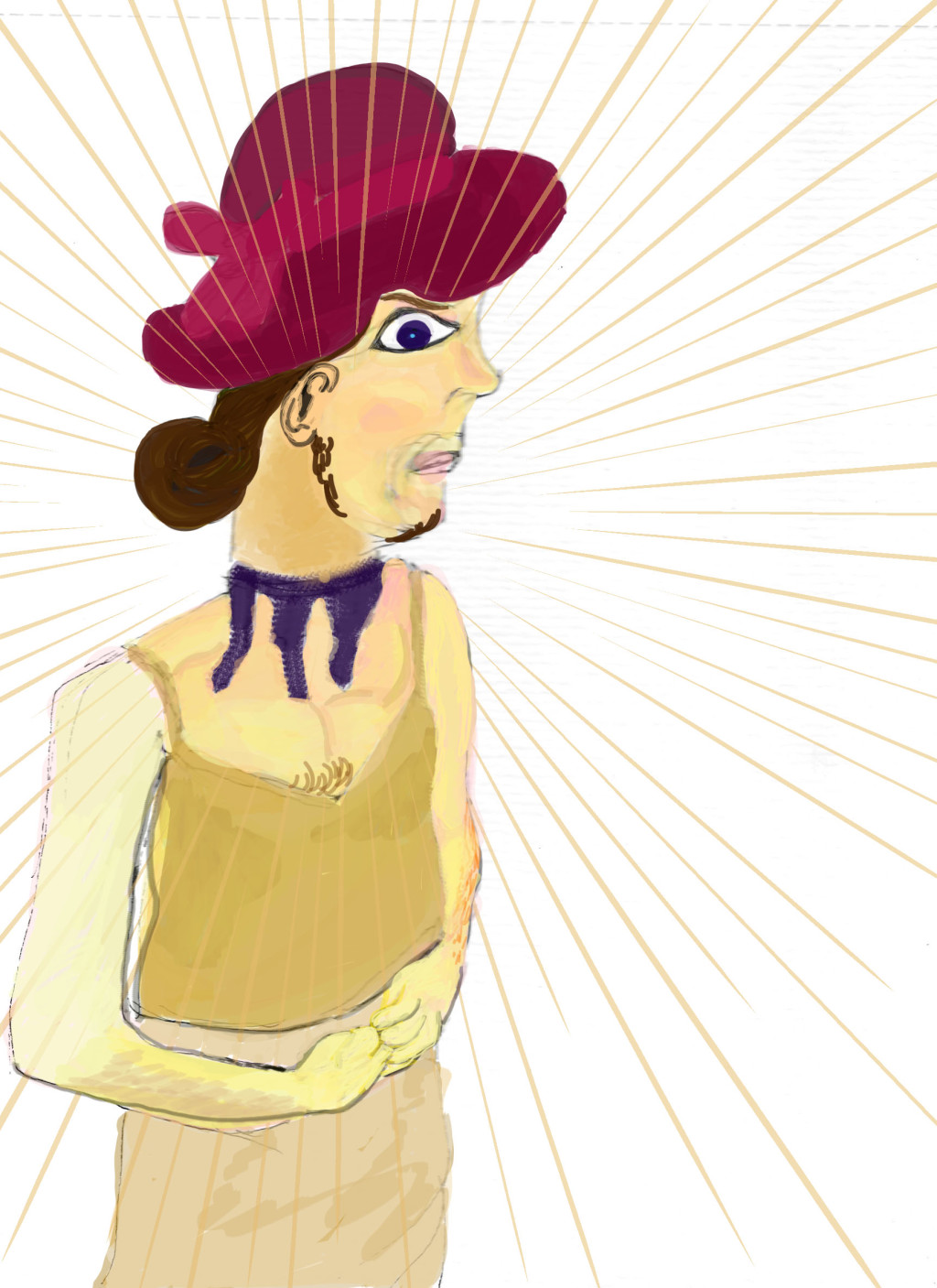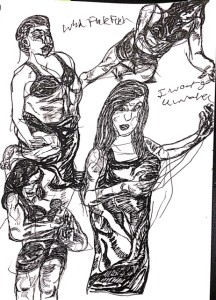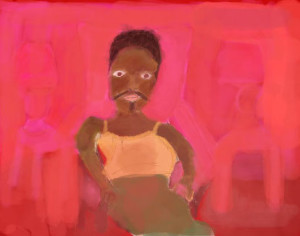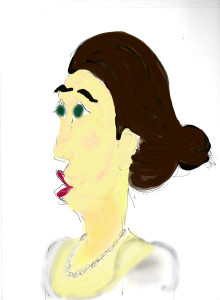
In an unlikely coincidence of scheduling, Philadelphia sees the performances of three adaptations of Chekov’s Three Sisters, each helmed by a female director. Directed by Harriet Powers, Hedgerow Theatre’s production (running February 6 to March 3, 2019) uses an adaption by contemporary playwright Sarah Ruhl (In the Next Room (or The Vibrator Play)). Over at Curio Theatre Company, director Mef Trelease stages an irreverent version running February 6 to March 6, 2019) by female devising company RashDash. EgoPo Classic Theatre continues its season of South African plays with Three Sisters Two (running January 30-February 17, 2019), a sequel-of-sorts to Chekov’s classic directed by Brenna Geffers.
Phindie asked each director about this month of Three Sisters. Sketches by Chuck Schultz.
Phindie: What makes this such a fitting time for a Three Sisters production?
Harriet Power: Chekhov was the first playwright to make the tiny, seemingly casual nuances of human interaction his focus, and remains the playwright who does it with the drollest humor, and the deadliest yet most loving accuracy. A doctor by profession and a keen observer of human nature, he didn’t judge us. He felt every bit as awkward, ardent, hungry, blind, goofy, and hopeful as we are. So in our immediate present, when politics and values divide and threaten us, a play that affirms our common hopes and dreams feels especially well-timed. Three Sisters also captures a particular moment in history that still feels extraordinarily relevant, especially now, when our country feels poised on the brink of change and fear and hope, as Russia was in Chekhov’s lifetime. One hundred eighteen years after its creation, Three Sisters still resonates, still poses questions that consume us, still moves us in ways that draw us closer to ourselves and those we love.

Meg Trelease: Given the rampant misogyny of our current administration, it feels like the perfect time to mount a bold, unapologetic, feminist re-imagining of this play. Our production pays homage to Chekhov’s classic, but it is rewritten by RashDash, an all-female devising company from the UK. There are no men in this production, and our three sisters exist outside of any sort of male gaze. It feels radical, and I daresay these times call for radicalism in art and in life.
Phindie: What makes this such a suitable time for Three Sisters Two?
Brenna Geffers: Three Sisters Two places the characters from Chekhov’s play within the throes of the Bolshevik Revolution. When I first read it, I was struck by how the characters were clinging to the residue of their old lives while the world was crashing down around them. They were still so preoccupied with the place that they had held in society, a place that they had been born into, that they could not see how useless their old identities had become. While they argued about samovars and past injuries, the world had become something else entirely. They had no place in this new world and this new world had no intention of making space for them anymore. A piece that shares the ugly truth about outdated identities and a world that was moving on without them feels very resonate. I think, depending on who you are as a person, you will interpret those outdated identities differently. I think that is very exciting.
Phindie: What attracted you and what appeals to you about Three Sisters Two?
Brenna Geffers: Reza de Wet is an incredible playwright and was way ahead of her time. She creates worlds that juxtapose realities on top of each other to allow audiences to make connections between them. To me, that is art’s truest power. She created 3S2 for an audience of Afrikaners who had just come through Apartheid. These fallen theater icons, the three sisters, were a vessel for her contemporaries to see their own vanities reflected. She was neither precious with Chekhov’s world nor did she worry about putting specific references to the world of her audience. She allowed both to be present in a way that created a wholly new piece of art. I think that is the mark of a truly gifted playwright.

Phindie: How does it change our perspective on the Chekov play?
Brenna Geffers: Three Sisters Two really isn’t about Chekhov. While it does use the images and the characters, it does so to create something new. It invites us to recognize these characters and scenarios and then, from that recognition, go someplace entirely separate. Three Sisters One, as I now affectionately call it, is intact and still its own valid and beautiful play.
Phindie: Meg, what attracted you to and what appeals to you about the RashDash adaptation of Chekov?
Meg Trelease: There was nothing about this play that didn’t absolutely terrify from the very beginning, and that made me want to do it even more. I’ve never tackled devised text in this way, and the cabaret structure made it feel like even more of a wild card. Also, the piece requires so much collaboration, and I am so lucky to be able to work with Curio company members Colleen Hughes, Rachel Gluck and Tessa Kuhn. It was such a privilege to work with these brilliant women so intensely in order to crack this piece.
Phindie: Harriet, what attracted you to and what appeals to you about the Ruhl adaptation?
Harriet Power: I’ve previously directed Chekhov five times and always used the excellent Paul Schmidt translation. Ruhl shares with Schmidt utter naturalness of speech patterns, beautifully capturing the rapid subject shifts, humor, and self-interruptions that characterize everyday conversation. Ruhl worked with a literal translation and native Russian speakers in creating her version, and she shines, in particular, in two areas: she understands, and encodes, the humor so crucial to Chekhov. And when the characters are disappointed, frustrated, pained, her words help actors embody defiance rather than self-pity.
Phindie: What will surprise audiences about your Three Sisters production?

Harriet Power: Chekhov is funny! And full of life. Too many audiences, I fear, think of Chekhov as a gloom-and-doom playwright, or perhaps a “precious” playwright whom we’re supposed to admire but not necessary savor. In this production, we’re aiming to delight viewers, to encourage them to see themselves in the characters, in all their quirks, joys, contradictions, and playfulness, as well as their passions and blindness. I hope audiences will marvel at Chekhov’s near-infinite understanding of how we love, how we get in our own way, how we go about trying to be happy despite the inevitable ups and downs life dishes out to all of us.
Brenna Geffers: The playwright pulls images and themes from other Chekhov plays. It uses plays that many consider the most valuable and beautiful pieces of theater and asks us to consider what makes them valuable to us now. How do our identities continue to define what we think is valuable? What stories and what characters are valuable? What do we do about it?
Meg Trelease: Surprises ABOUND.
